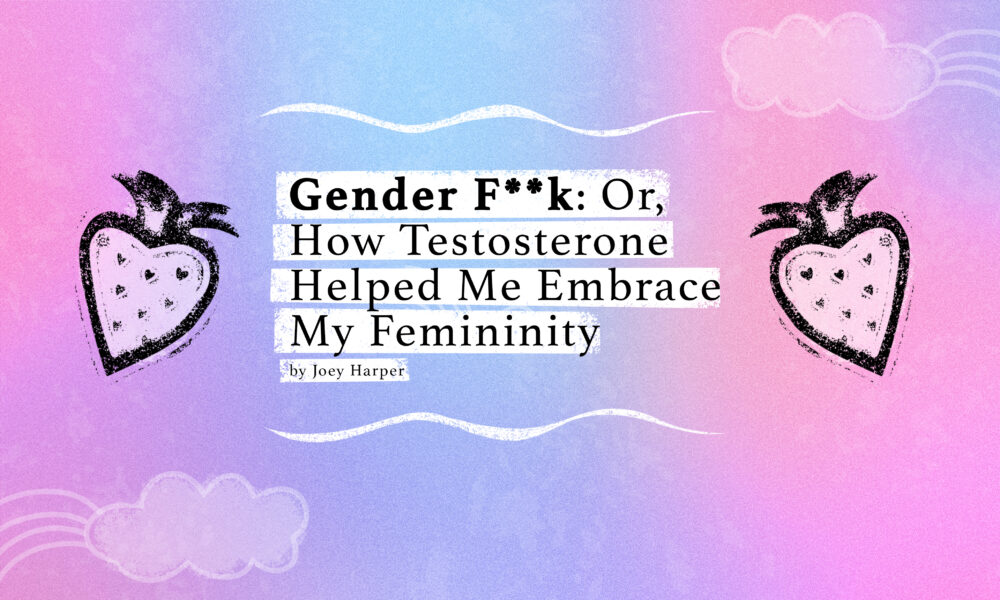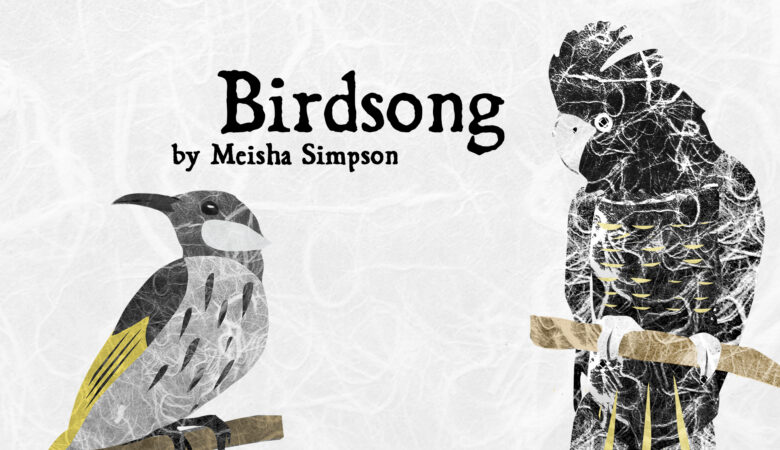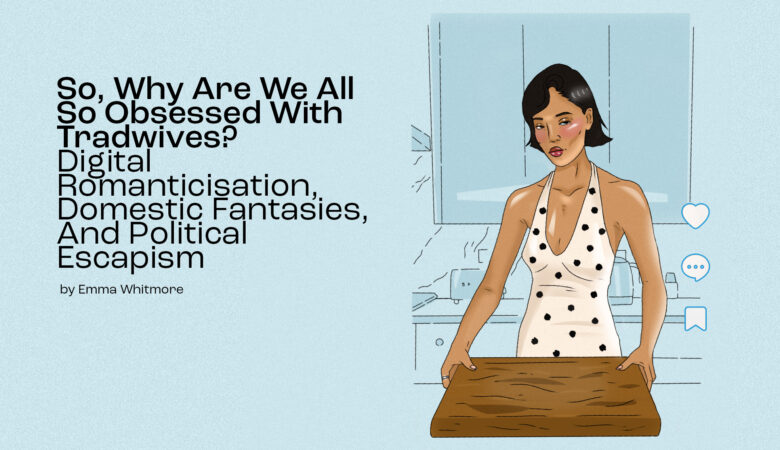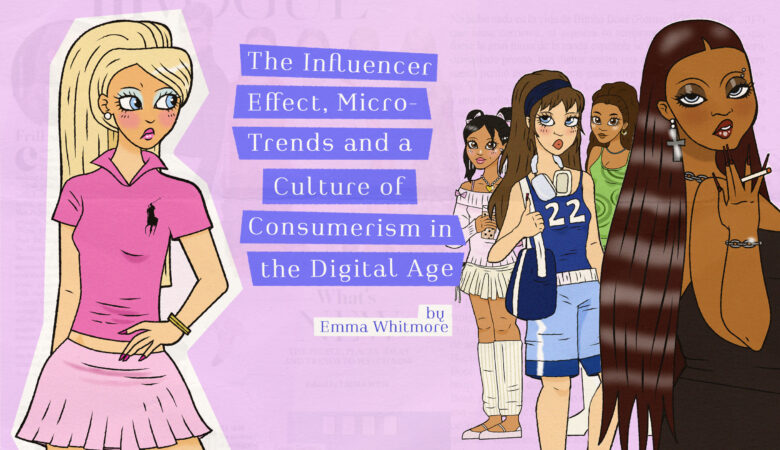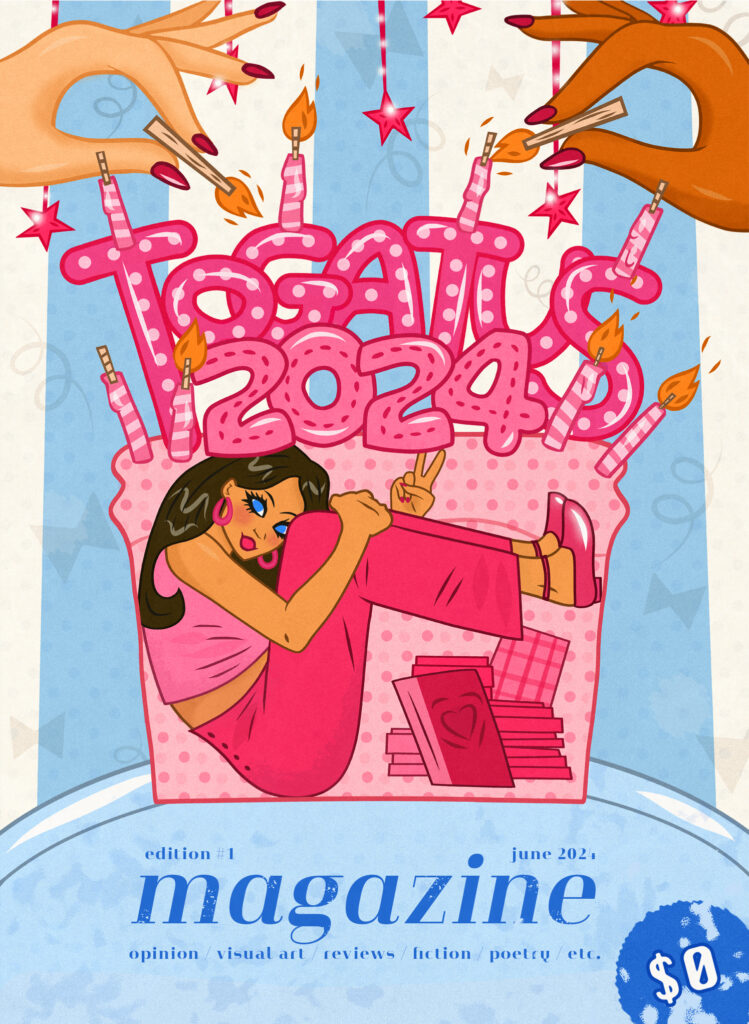TW: Discussion of Internalised Transphobia and Ableism
Upon starting the process for acquiring androgenising hormone replacement therapy (HRT), I was hesitant to say the least. Which was confusing to me. This was something that I’ve known I wanted to do for so long, so why was it all starting to feel so daunting? The short answer is that I was scared of being taken seriously. The long? Well.
I knew I was not cis from a young age, when I didn’t even have the language for it (see: my previous piece on the subject from two years ago). I was always described as a tomboy and hated pink and dresses—anything that would clock me as a girl. This was one part internalised misogyny, one part internalised transphobia, and two parts absolute nightmare gender dysphoria. As soon as I figured out my trans identity, I wanted radical changes: hair cropped short, binder firmly in place, a new name—a new life. This gender panic (for lack of a better term) probably seemed like toxic, self-sabotaging internalised sexism at its finest, but it was an important part of my journey.
Flash forward a few more years down the line, I was trying to find my personal style. Something uniquely me but also gender affirming. Through my exploration of trans expression on the internet, I started to fall in love with pink and flowy materials again and began playing more with colourful eye makeup, but I was afraid to admit it. What kind of masculine person wears skirts and soft colours? Well, plenty of cis men and beautiful trans-masculine folks—but not me. I was not allowed. I was gatekeeping myself from these aspects of my own self-expression, but in the same breath praising others who were brave enough to be true to themselves. My engagement in this kind of ideology was largely derived from some influencers I was following at the time who firmly believed that it was a trans person’s duty to ‘pass’ for the comfort of cisgender people. I, in turn, believed it was my duty to appeal to the cis population at large.
But, news flash Joey! It does not matter how well you ‘pass’—in whatever way society deems ‘appropriate’—cis people will still find you discomforting. You might make them uncomfortable in how vocal you are about your identity, or maybe you are taking up too much space for their liking. Whatever the reason, those kinds of cis people will always find a way to other trans and gender non-conforming folk. The number of times I have entered a TikTok comment section where there is a trans (typically nonbinary identifying) actor, the cacophony of “it” being thrown around makes my stomach churn. And while it/its are pronouns that some trans folk find euphoria in, the blatant misgendering of trans individuals who use different pronouns (such as they/them) is absolutely abhorrent. Much like the “is it acoustic” trend that I have seen, the attempts to dehumanise marginalised groups, especially in online spaces, is part of why I have wanted to be a ‘good’ trans person for so long. One that will stay in their place and not discomfort the cisgender populace. It was through this need for validation and to prove to transphobes that I was human that I developed an unhealthy obsession with ‘passing’.
On the other end of the spectrum, there are also fantastic resources in online spaces about what it means to be trans, the kind of changes you can make to feel more gender affirmed (such as voice training, safe binding methods, and tucking), as well as so many trans and gender non-conforming creators. As much as there are so many hardships that come with being trans and living my truth, I am lucky to be navigating my trans identity in the 21st century where connecting with other trans people is so much easier than it was without the internet.
The increasing amount of trans visibility in media has been hugely beneficial, too. Although the last season of Sex Education was met with mixed reviews (including from myself) it did introduce me to trans masculine actor Felix Mufti (he/they). While Felix has undergone HRT and gotten top surgery, he is not afraid to embrace feminine aspects of himself. As a self-proclaimed “Scouse glam camp vamp Bratz doll”, Felix’s style includes glam makeup, long acrylic nails, and some truly camp pink jackets. Seeing this sort of representation in a pretty mainstream TV series allowed me to start accepting how I wanted to express my gender in a way that is affirming for me.
And you know what? I like cute things! I like collecting strawberry themed items and clothing. I like singing along to Chappell Roan, Remi Wolf, and Carly Rae Jepson at the top of my lungs with my friends. I like wearing fun colours and patterns and skirts, because let’s be honest here, the ‘Men’s Clothing’ section is so, so boring. I like being feminine! That’s not to say that I identify with she/her pronouns, but my experience growing up being perceived as a woman is still incredibly important to me and my identity. Because what I also love are the effects that T gel is already having on me and my mental health. I love my slowly deepening voice that cracks ever so slightly when I get excited. I love the faintest touches of facial hair coming in, patchy and blonde, but still there. I like my partner calling me handsome and getting excited for me at the changes I’m experiencing (as I will for them). So yes, I’m a gender anomaly and nightmare, but I’d rather be that than sad and repressing the things that make me happy in the name of being a ‘palatable’ trans person.
